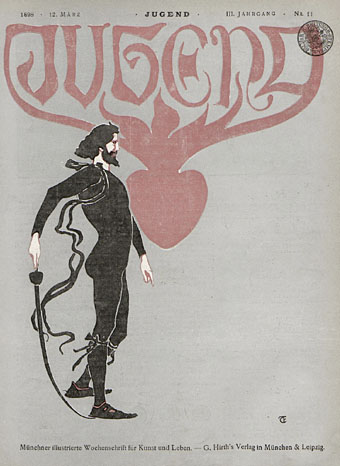
Continuing the delve into back issues of Jugend magazine, the German fin de siècle periodical of “art and life”, this post covers the year 1898. As before, Jugend was so copiously illustrated that the selection here can only scratch the surface. Anyone wanting to see more of these graphics is advised to explore the bound volumes at the Heidelberg University archive. The two books for 1898 can be found here and here.
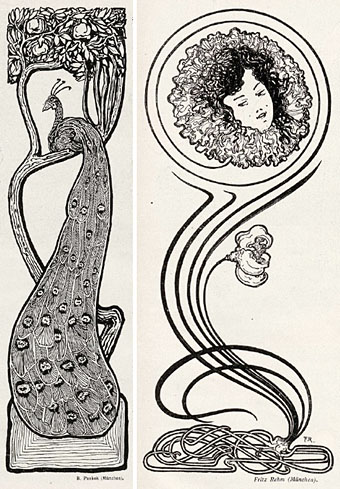
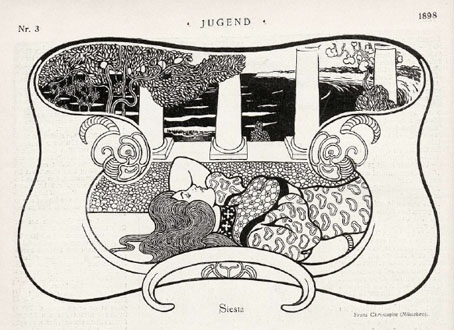
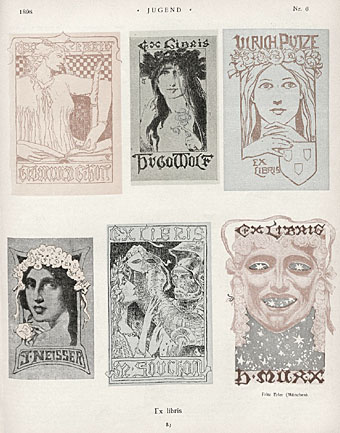
One of two pages of bookplate designs.
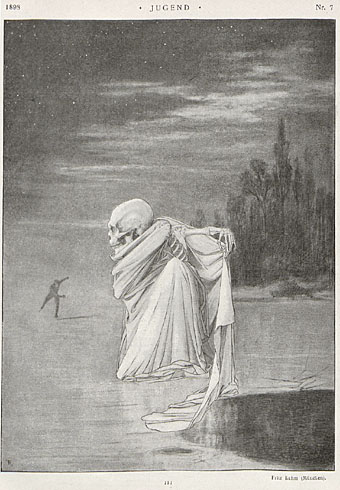
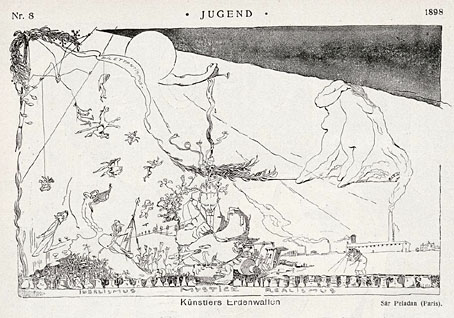
This was a surprise, a rather strange and not entirely successful symbolic drawing by Joséphin Péladan (1859–1918), aka the Sâr Peladan, author of L’Androgyne (1890) and founder of the Salon de la Rose+Croix in Paris, a Symbolist art salon.
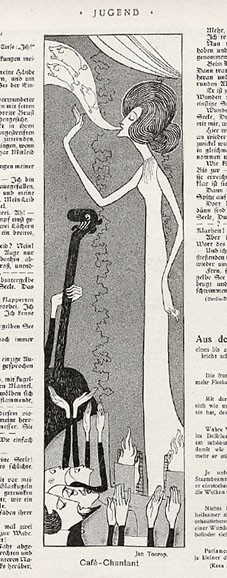
Another work with Symbolist connections, a cartoon by Dutch artist Jan Toorop.
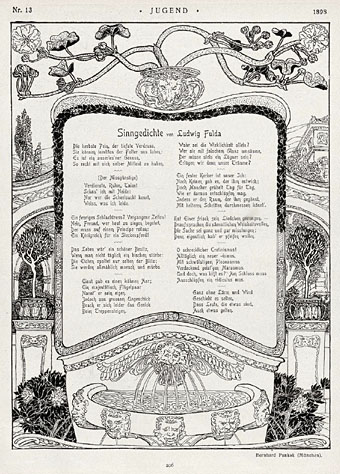
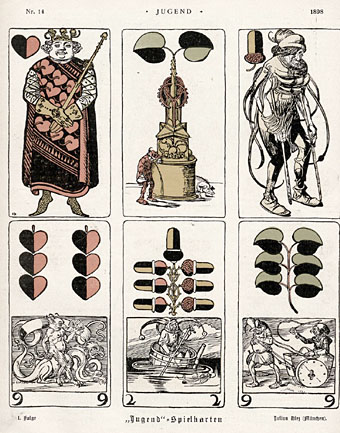
One of several pages of playing card designs specially created for the magazine. The deck was for sale in the back pages of Jugend along with postcard sets.
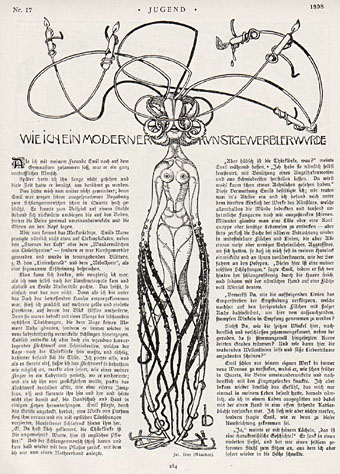
The card deck was by Julius Diez whose illustrations appear regularly throughout this year. The strange plant woman above is also one of his.
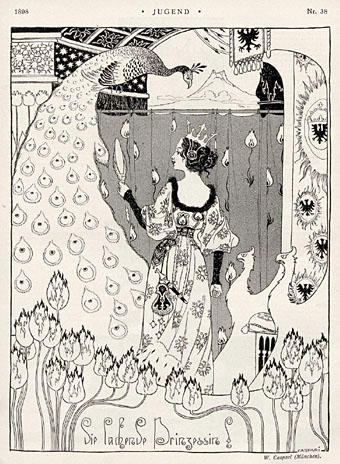
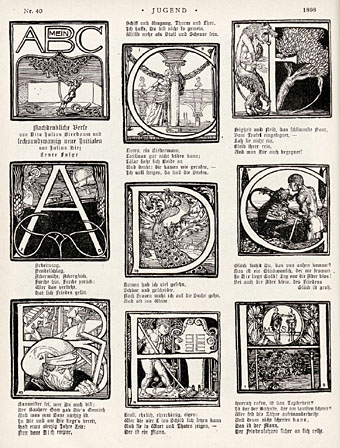
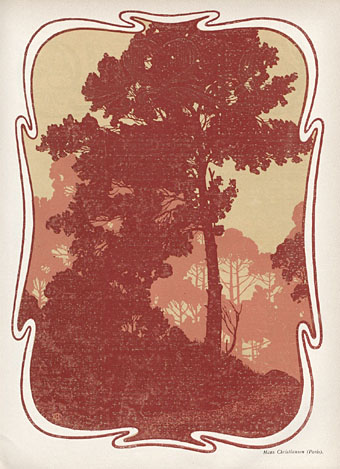
Above and below, a pair of marvellous pieces by Hans Christiansen, another regular contributor.
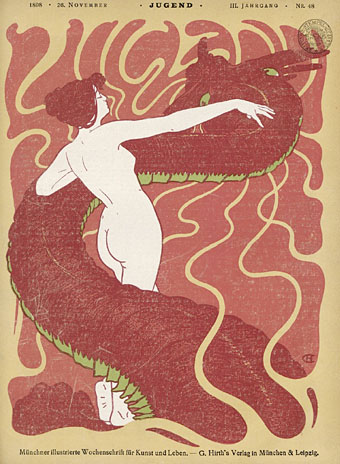
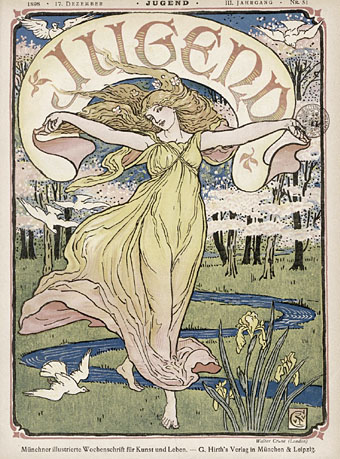
And another surprise, a cover by the great British artist and book designer Walter Crane.
Elsewhere on { feuilleton }
• The illustrators archive
Previously on { feuilleton }
• The Savoy magazine
• Jugend, 1897
• Deutsche Kunst und Dekoration
• Jugend, 1896
• Jugend Magazine revisited
• L’Androgyne
• The Great God Pan
• Jugend Magazine

Julius Diez and his plant woman would fit well in the much-later Der Orchideengarten!
I was thinking the same. Walter Crane gives Jugend a passing mention in his The Decorative Illustration of Books (1896) where he says that some of the artwork “seems rather overgrown with grotesque feeling and morbid extravagance”. That quality seems to have been inherited by Der Orchideengarten.